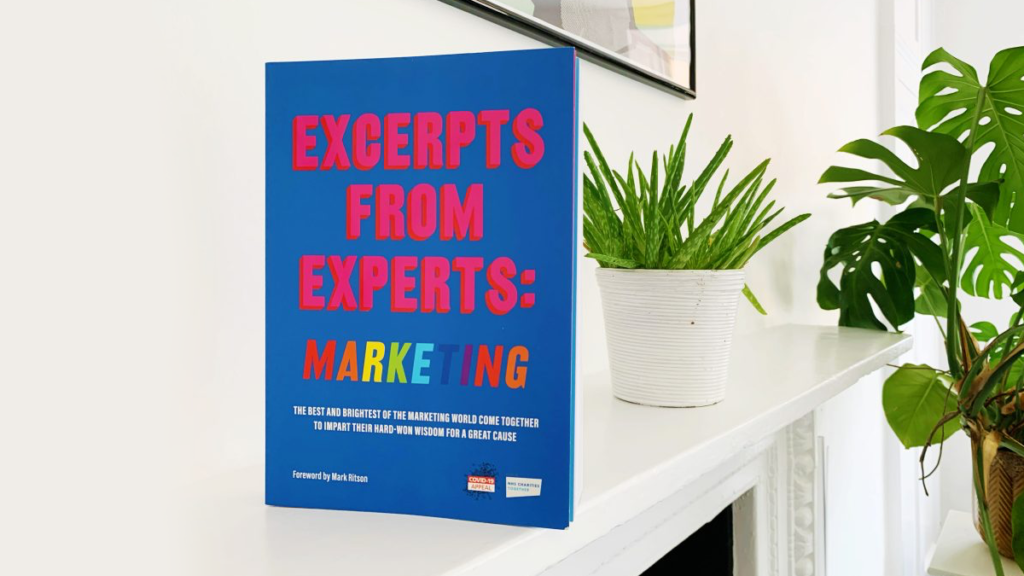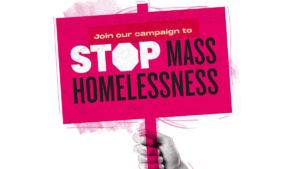By Joel Barnett, Managing Director at Fortune Hill
Earlier this year, the team at Fortune Hill united the marketing community to publish a book; Excerpts from Experts: Marketing, in aid of the NHS Charities Together Covid-19 Appeal.
A collaboration of over 200 marketers, the book contains a unique and illustrious wealth of marketing wisdom and knowledge, perfect for anyone with an interest in marketing the next generation of marketers to enjoy, learn from and be inspired by.
In my opinion, one of the most interesting learnings from the book the perception of marketers as to what constitutes great marketing. For example, we asked our contributors to tell us which three words best describe ‘great’ marketers.
- 43 per cent of respondents answered ‘curious’
- 27 percent said ‘’creative’
- 18 per cent said ‘brave’
While these all certainly make sense at the time, given the nature of the events this year, I suspect that the same exercise would yield a very different result six months’ later. I would expect words such as ‘resilient’, ‘adaptable’ and ‘empathic’ to feature more commonly.
Marketing in a pandemic and beyond
Over the past nine months, we have discussed with numerous senior marketing leaders the impact COVID-19 has had on them professionally. It is fair to say that the results couldn’t have been more varied.
While some businesses are booming, some are facing previously inconceivable levels of challenge. Every business has had to adapt to whatever reality has been thrust upon them. Numerous brands have drastically reduced marketing investment, while others have reallocated the majority of their spend to direct response activities.
The one thing that has been consistent however, is the most extraordinary level of change 2020 has created for the industry. This year has been simultaneously the most challenging and exhilarating time to be in marketing.
But those organisations and brands who will be viewed as the winners from 2020, despite the hardship, are those who have demonstrated empathy to both their customers, and their workforces. Everything in marketing ultimately relates to a single common denominator: people.
Adaptability
Enforced working from home has had a massive impact on our colleagues and customers.
For colleagues, in most cases, remote working seems to have streamlined operations and decision making. As a result, marketing teams have proven that they can shorten timeframes in a way they had not previously realised to be possible. Work is being turned around much faster because of the imperative to move quicker than ever before.
Levels of creativity have seemingly increased in some instances, too. Perhaps because there are no precedents to refer to, no case studies or frameworks you can rely on to guide you through the swathes of new issues.
Conversely, some marketing departments have witnessed creativity diminishing, possibly as a consequence of people being stuck at home, tired, anxious and devoid of external cultural stimulation. This may also be due to a more recent issue of exhaustion, creative burn-out and zoom fatigue. This has led to many of the more people-focused organisations being mindful of their people’s need to rest and recharge.
Resilience
Colleague recruitment has also been impacted. Leaders now need to assess how well a new colleague is able to operate independently as a member of a virtual team. Businesses need to consider where individuals sit on the extraversion spectrum, which speaks to their need for social interaction to feel energised and produce their best work. These are not considerations that have been high on the agenda previously when assessing the suitability of a potential employee.
Customers working from home has also changed the game. Marketers have to be conscious of how people’s lives have been impacted by lockdown. For example, customers are spending between 50 per cent and 70 per cent more time on their phones. As such, channels like TikTok – currently the most downloaded app worldwide – have presented a whole new set of challenges and opportunities.
Empathy
Even the shrewdest marketing teams seem to have dedicated their energies to being helpful rather than attempting to be purely creative or entertaining. The brands that have adopted a tone that prioritises human well-being above commercial results are the ones more likely to prosper in the longer term. Sensible brands have sought opportunities to build trust.
This week, for example, Burger King in France did something simply extraordinary by encouraging their customers to eat at McDonalds and KFC, ending their long-running social media ‘feud’. What message were they broadcasting? That they consider the safety of people and well-being of society on the whole to be more important than commercial returns.









